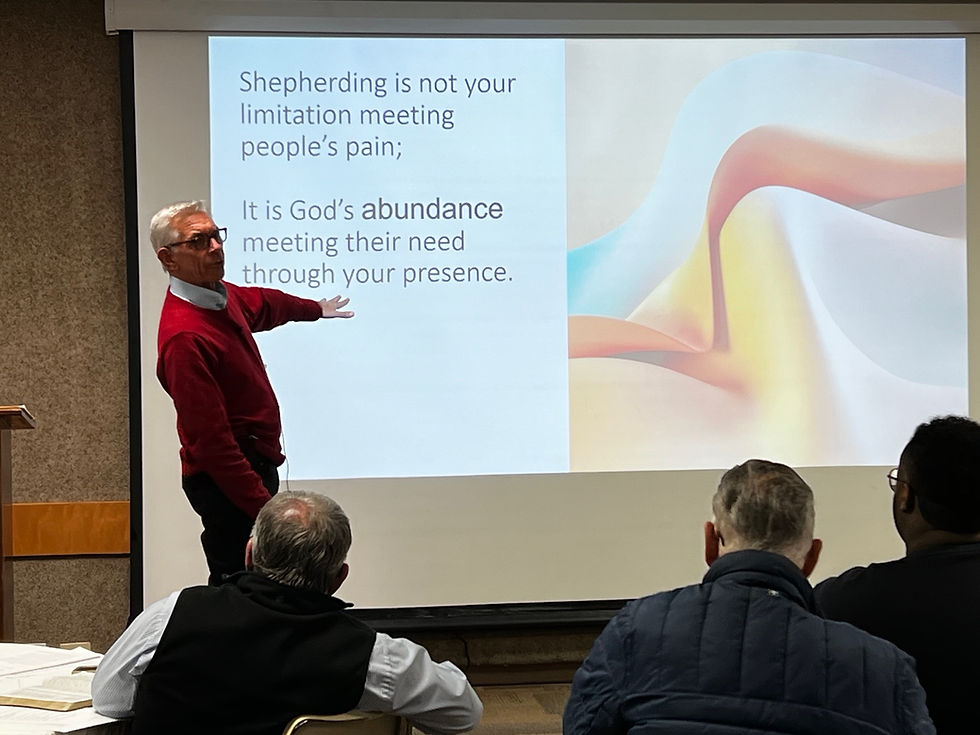Addressing the Crisis in Christian Worship
- Todd Hall

- Feb 28, 2024
- 2 min read

The Center for Christian Studies is pleased to make available Dr. Wendell Willis' book, When You Come Together: The Theology and Practice of Christian Worship. In this work, Dr. Willis provides a discussion of worship that is both scholarly and accessible. He begins with a survey of the "landscape" of worship in many contemporary churches, followed by a robust theology of Christian worship. He then proceeds through the various acts of Christian worship—common prayer, singing, sermon, the Lord's Supper, and others—providing historical antecedents and precedents as well as suggested practices for the church today.
Discussing the importance of reflecting on our worship practices, Dr. Willis writes,
"For a generation, 'worship renewal' has been a hot topic within all churches. The suggested motivation has often been that the inherited worship practices have grown stale and are no longer engaging the hearts and minds of many (the estimated percentages of the disaffected vary widely). A frequent response has been to seek to 'jazz up' the worship by importing some new elements (new songs, zippier—and usually shorter—sermons, readings, skits), an approach which focuses upon symptomatic change. The result is that currently in many Churches of Christ worship is often shaped by a dangerous combination of random experimentation in practice and lack of clarity in purpose. Too often we do not know what we are doing—or why.
"We need to understand what we do in worship and why we do it (as well as what we do not do and why we do not). Otherwise we are either hostages to nonreflective traditions ('We have always done it this way') or—equally bad—hostages to fads ('You know what we have never tried?'). There is a textual variant in some ancient manuscripts to Luke 6:4 where Jesus observes a man working on the Sabbath. Jesus says to him, 'Man, if thou knowest what thou doest, blessed art thou! But if thou knowest not, thou are cursed and a transgressor of the law.' This story is very unlikely to give authentic words of Jesus, but the point it makes seems appropriate here—the true significance of what you do is related to what you understand yourself to be doing. It makes a difference not only what we do, but why we do it.
"Worship is the most significant aspect of forming Christian faith for most believers. The first value is that it improves our vision of God. That may be the greatest need for the church today. This includes, but is not limited to, our doctrine of God (which can be solely a matter of the head). The old Westminster catechism asks, 'What is the chief end of man?' and provides the charmingly true answer, 'To fear God and enjoy him forever.' Worship is about knowing and responding to God."
This book is an excellent companion for churches and church leaders in thinking through the purpose and shape of Christian worship.
Dr. Wendell Willis is retired professor from Abilene Christian University and formerly taught at Missouri State University in Springfield, MO. In addition to academic work, he served as a local minister for almost 20 years, both in Texas and Missouri.



Comments